Blood Test Celiac Disease Panel
Blood test celiac disease panel. Blood tests are the first step in diagnosing celiac disease and can help determine the need for further evaluation for confirmation of celiac disease. A final diagnosis of Celiac Disease should be confirmed by a doctor and may require an intestinal biopsy. Celiac disease CD is diagnosed by evaluating symptoms conducting blood tests and a small intestinal endoscopy biopsy.
Celiac Disease Comprehensive Panel - Celiac disease is caused by an immune response to gluten in genetically sensitive individuals. Recommendations suggest screening should be carried out in relatives of individuals with celiac disease especially if they have symptoms. That means that if a patient is IgA positive there is a 97 probability that they have celiac disease.
Such patients display a hypersensitivity to gluten wheat in their diet. It is important that patients continue to consume gluten as normal and do not start a gluten-free diet as this can result in false negative test results. The celiac disease test sometimes known as a celiac panel celiac lab test celiac test or celiac sprue test checks for blood antibodies related to celiac disease.
First-degree relatives parents siblings children of people with celiac disease have a 10-15 risk of developing celiac disease at any age. CELI Celiac Associated HLA-DQ Alpha 1 and DQ Beta 1 DNA Typing Blood Not celiac disease Possible celiac disease. In clinical trials the IgA antibodies have a specificity of 97 but the sensitivity is only 71.
These tests such as the tissue transglutaminase test tTG or the anti-endomysial EMA antibody test measure the autoimmune response triggered by gluten that occurs at a point in time. Screened with a blood test. Think of it as a photograph.
This Celiac Disease testing package looks for antibodies that typically develop in patients with Celiac Disease. The celiac blood panel registers higher than normal levels of certain types of antibodies that indicate the likelihood of celiac disease being present. Conversely if the patient is IgA negative there is only a 71 probability that the patient is truly negative for celiac disease.
The classic celiac panel only tests tTG2. Although high titers in serological testing.
The classic celiac panel only tests tTG2.
These tests are very specific because certain antibodies only appear in those with gluten sensitivity celiac disease andor dermatitis herpetiformis. Each of the coeliac blood tests measures the amount of a particular autoantibody in the blood. However they are advised to consume foods that contain gluten for approximately two weeks prior to testing as gluten-free. A final diagnosis of Celiac Disease should be confirmed by a doctor and may require an intestinal biopsy. For each test both IgG immunoglobulin G and IgA immunoglobulin A antibodies can be measured. Blood tests are the first step in diagnosing celiac disease and can help determine the need for further evaluation for confirmation of celiac disease. However few laboratories offer IgG tests other than for gliadin. Screened with a blood test. Endomysial Antibody IgA In the event of a positive result a quantitative titer test will automatically be performed at no additional cost Tissue Transglutaminase IgA.
A variety of celiac blood tests collectively referred to as a celiac blood panel are used as one key step in diagnosing celiac disease. Each of the coeliac blood tests measures the amount of a particular autoantibody in the blood. Celiac Disease Comprehensive Panel - Celiac disease is caused by an immune response to gluten in genetically sensitive individuals. A celiac disease blood panel includes several tests to determine whether someone has celiac disease. The classic celiac panel only tests tTG2. Testing begins with a test called Immunoglobulin A IgA. These tests such as the tissue transglutaminase test tTG or the anti-endomysial EMA antibody test measure the autoimmune response triggered by gluten that occurs at a point in time.
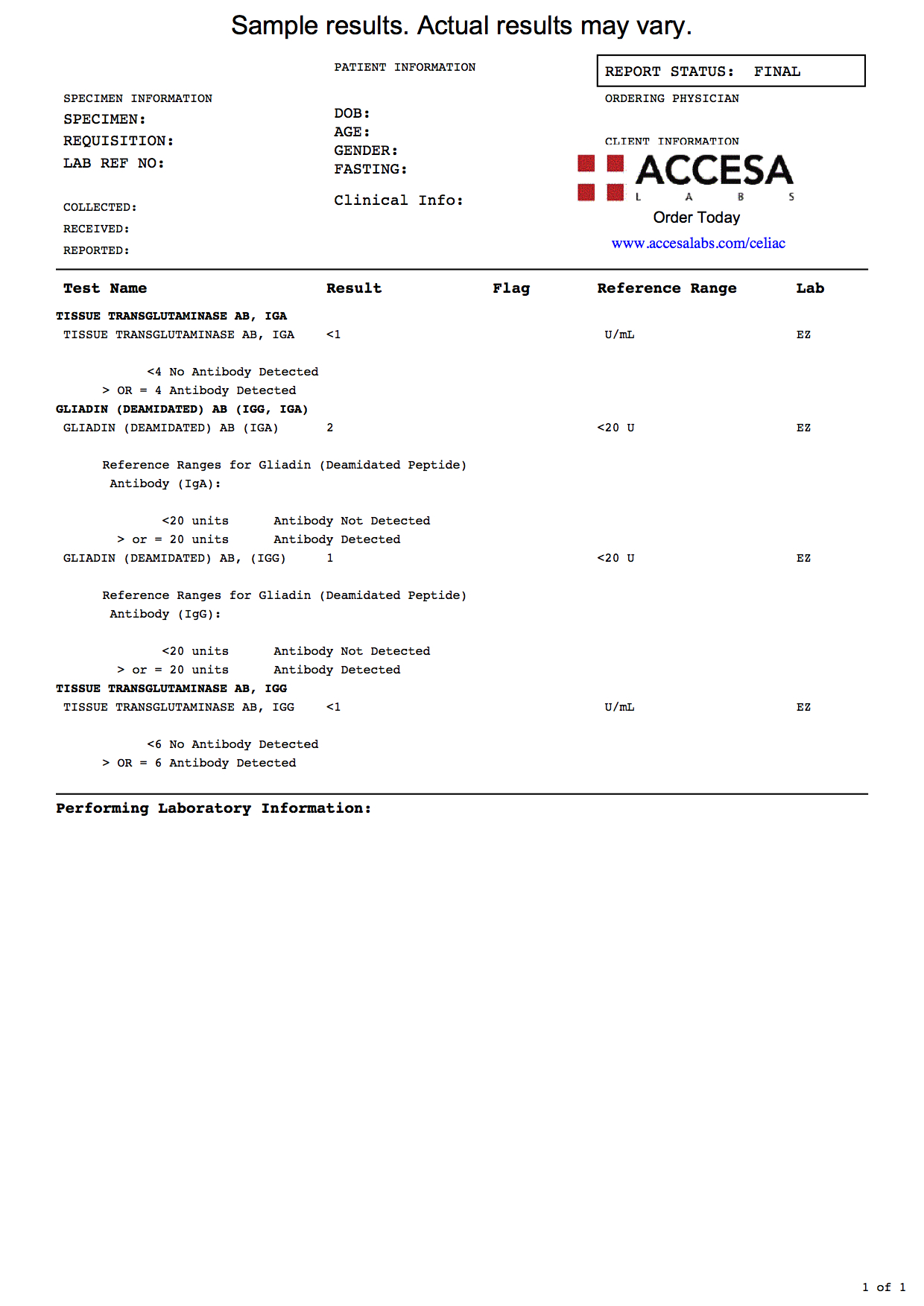

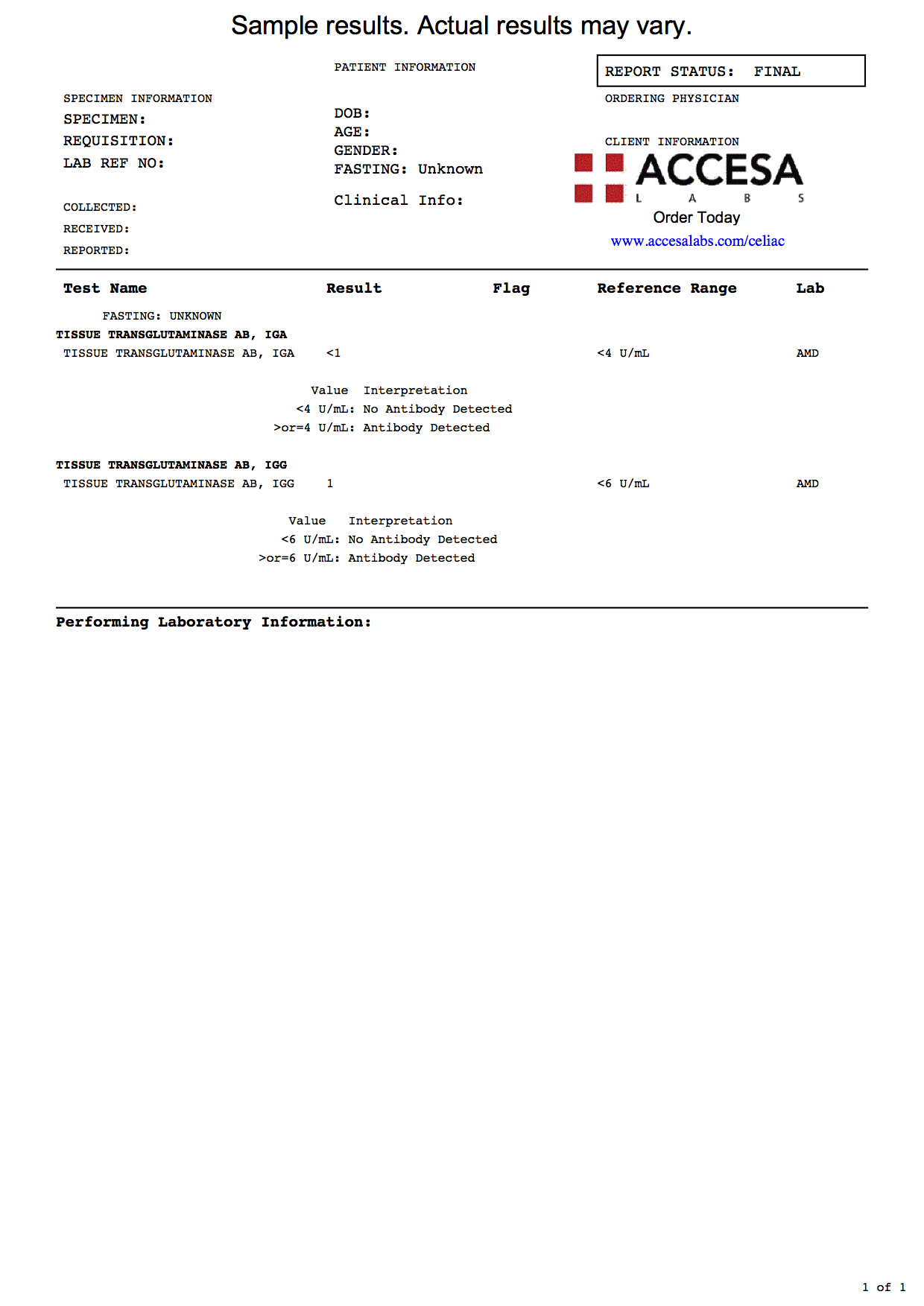

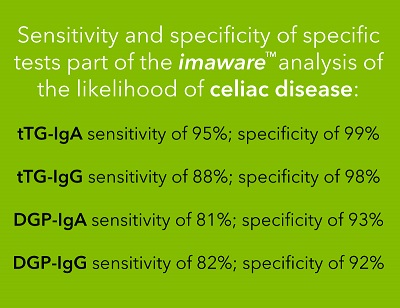

/Tye-Din-Figure2.jpg.aspx?lang=en-AU)
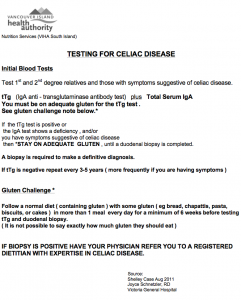


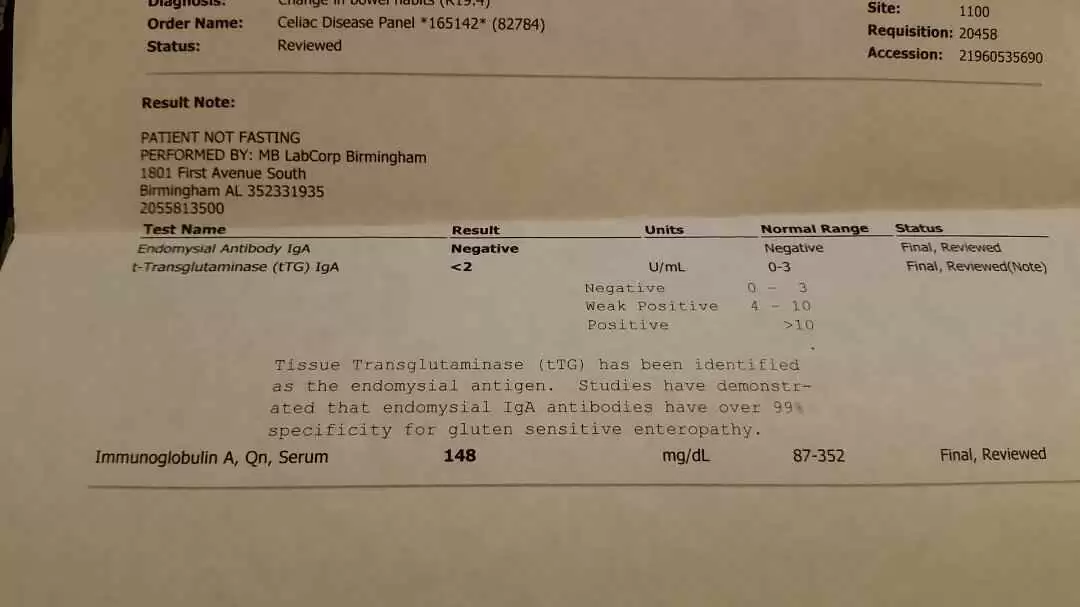










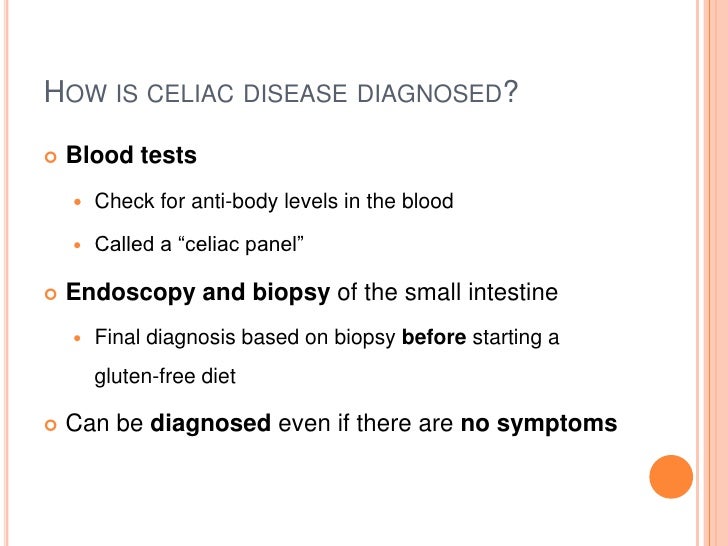





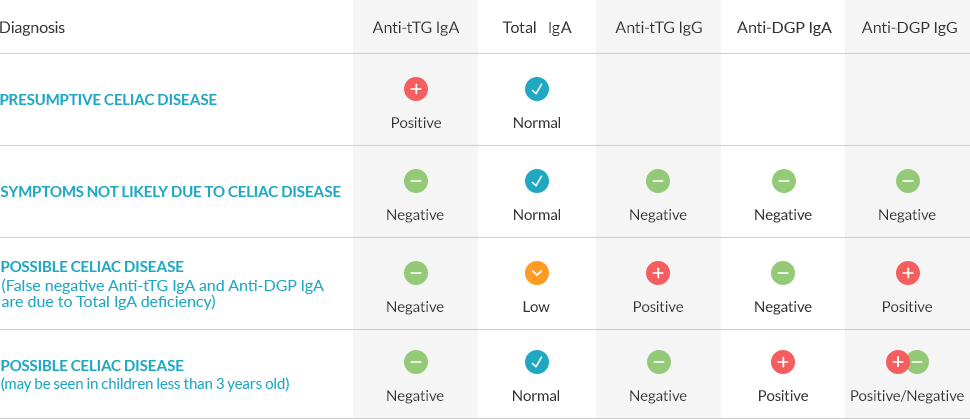
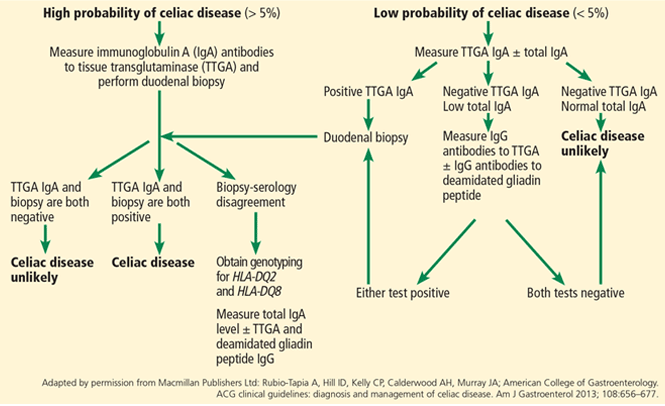



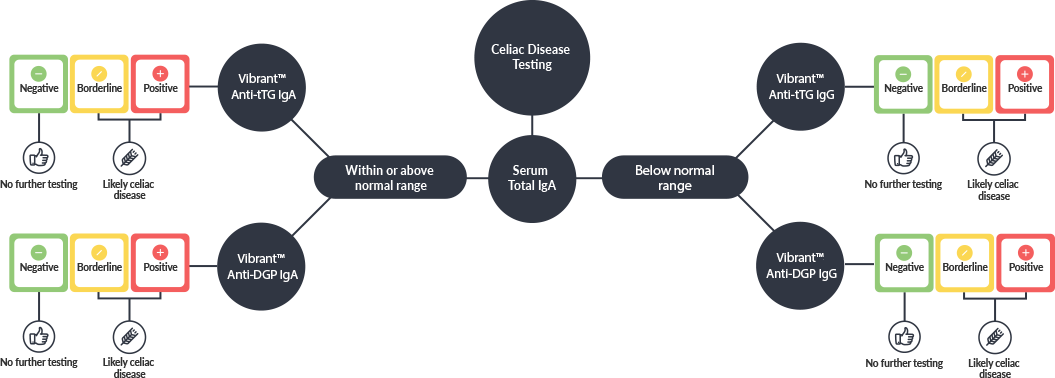

Post a Comment for "Blood Test Celiac Disease Panel"